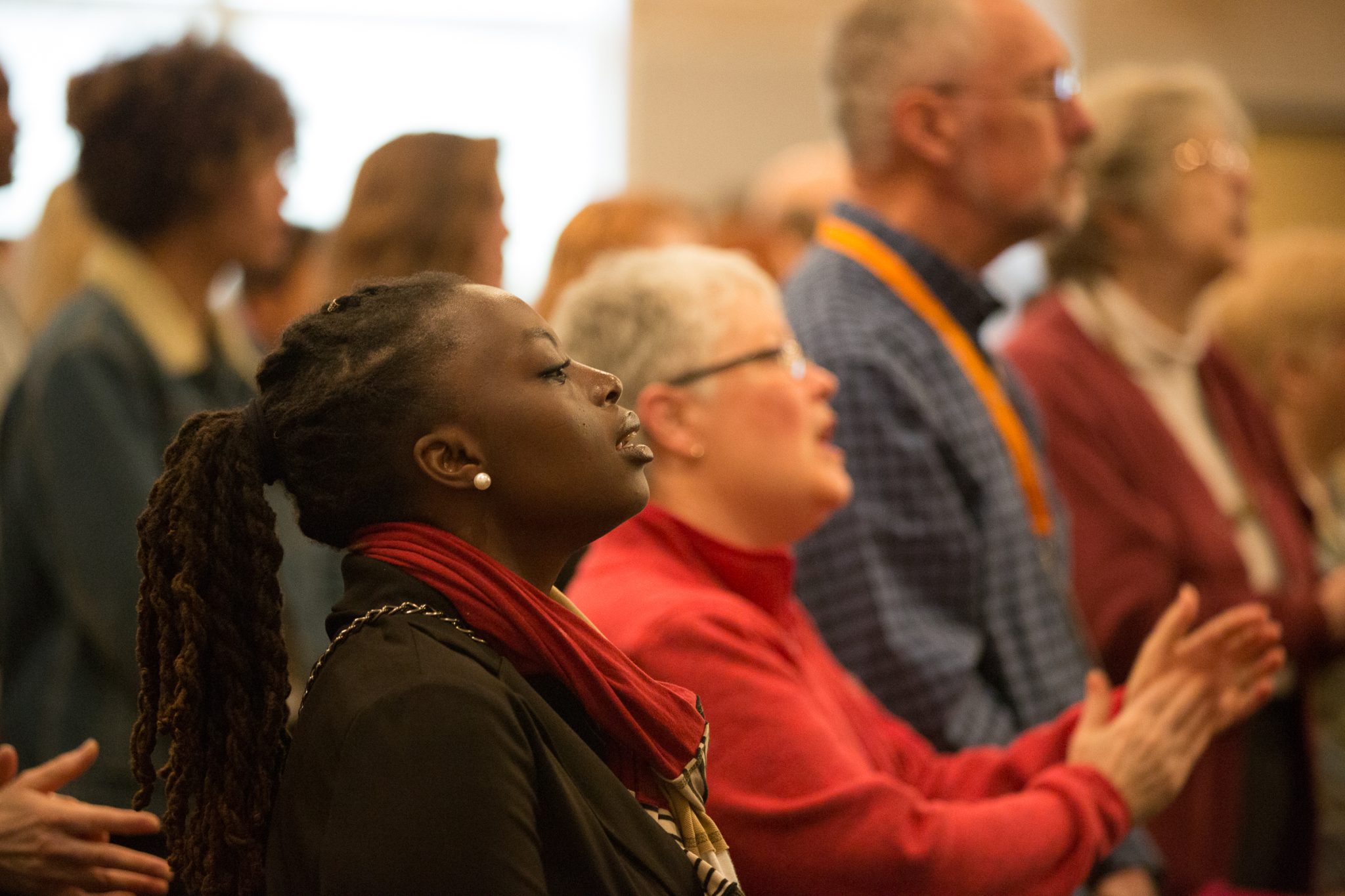By Tim Shaw
 Last fall, one of the Adult School of Discipleship classes read Andy Crouch’s book The Tech-Wise Family (Baker Books, 2017), and I led a session on chapter 9, “Why Singing Matters.” Drawing from that class, here are three reasons why we sing when we gather together in worship:
Last fall, one of the Adult School of Discipleship classes read Andy Crouch’s book The Tech-Wise Family (Baker Books, 2017), and I led a session on chapter 9, “Why Singing Matters.” Drawing from that class, here are three reasons why we sing when we gather together in worship:
Singing is how God’s people respond to God’s redemptive acts. Music expresses what words alone cannot. Moses and Miriam led the Israelites in an impromptu song of praise immediately following the miracle at the Red Sea (Ex. 15:1-2). After an angel told her she would bear the Savior, Mary responded with a song of praise, recorded in Luke 1:46-55. An aged Simeon sings in Luke 2:29-32 when he finally sees God’s Deliverer in the flesh. Paul and Silas, trusting in God’s provision in spite of their circumstances, sang a duet while imprisoned (Acts 16:25). Singing helps us process, if only in small measure, who God is and what he has done for us.
Singing is one of the best ways that we teach and recall truth. We sing in order to teach younger generations, to remind ourselves of truth, to embed in our memories the stories of what God has done. Why do we use music to teach children the alphabet? Because it works! Near the end of Moses’ life, God told him to teach using a song (Deut. 32), so Moses composed a lengthy song (Deut. 32) and taught it to the people of Israel. Why? Music and memory are inextricably linked, and God wanted his people to remember his Word. Paul has a similar exhortation to Christians in Colossians 3:16: “Let the word of Christ dwell in you richly, teaching and admonishing one another in all wisdom, singing psalms and hymns and spiritual songs, with thankfulness in your hearts to God.” Singing is an important part of how we grow, and how we help others to grow, in wisdom and Christian maturity.
Singing is how we lament the human condition. The book of Psalms is full of lamentations. One of the bleakest is Psalm 88, which ends, “You have caused my beloved and my friend to shun me; darkness has become my only companion.” We recognize that the world is not as it should be. The effects of sin are felt everywhere, and we mourn. At times, perpetrators of evil seem unstoppable. In Matthew’s gospel account, after Herod orders the mass murder of all male children in Bethlehem who were two years old or younger, Matthew recalls this prophecy from Jeremiah: “A voice was heard in Ramah, weeping and loud lamentation, Rachel weeping for her children; she refused to be comforted, because they are no more.” In Romans 12:15, Paul writes, “Rejoice with those who rejoice, weep with those who weep.” One of the ways we do that is with music, which is able to express what words alone cannot. In this regard, I am reminded of the Holy Spirit’s ministry to us: “Likewise the Spirit helps us in our weakness. For we do not know what to pray for as we ought, but the Spirit himself intercedes for us with groanings too deep for words” (Rom. 8:26). I have often wondered: could these “groanings too deep for words” be musical lamentations of the Holy Spirit? Having provided music for many funerals, I have witnessed firsthand the power of music to comfort those who mourn.
(Stay tuned for more reasons why singing matters in a future post…)
